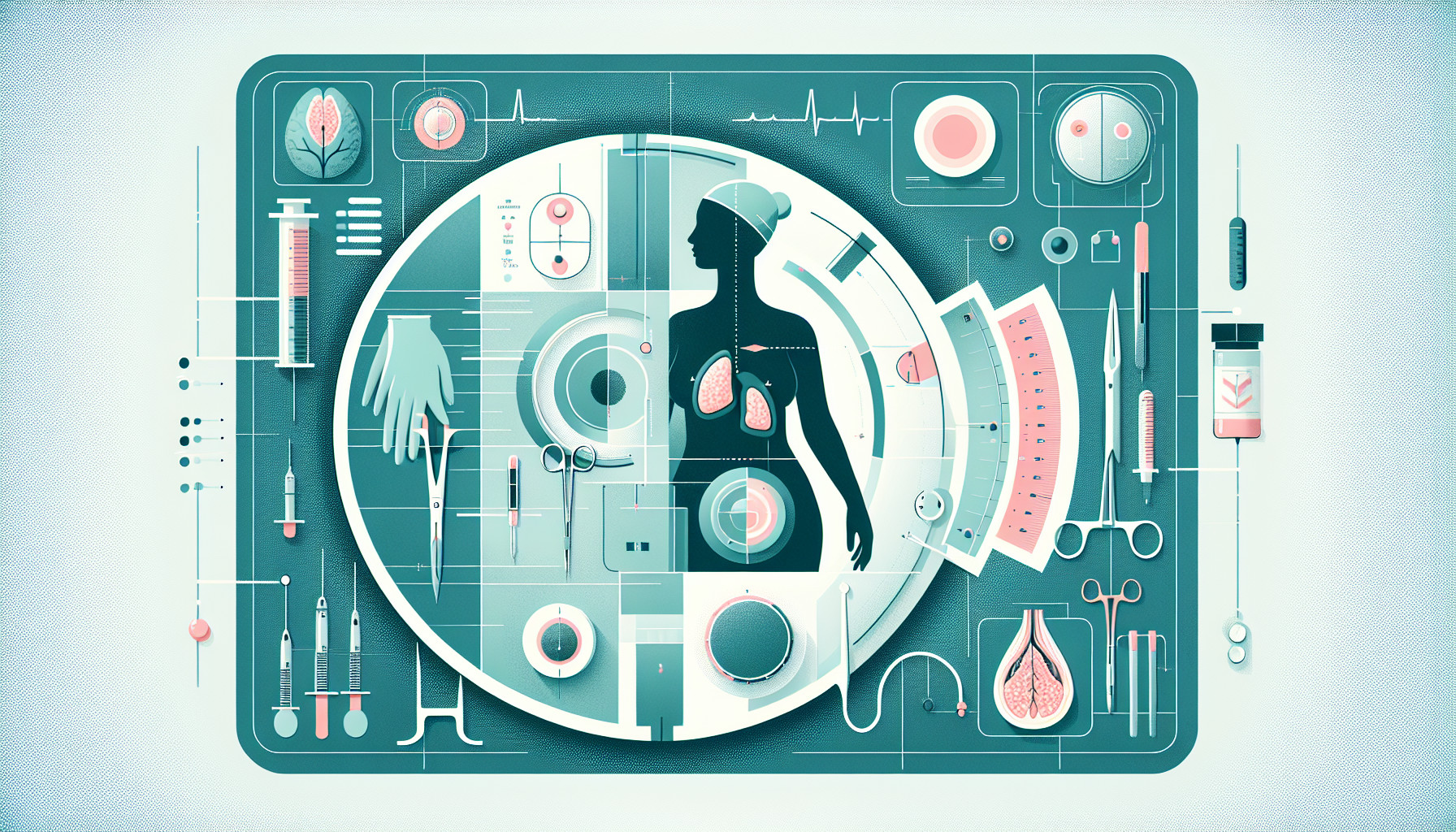Our Summary
This research paper investigates whether having a preventive mastectomy on the healthy breast (contralateral prophylactic mastectomy) increases the risk of complications for patients who are already having a mastectomy on one breast due to cancer (unilateral mastectomy). The researchers analyzed 15 studies that met their criteria. They found that for patients who had both a unilateral mastectomy and a preventive mastectomy, the breast with cancer had a higher risk of complications compared to the healthy breast. They also found that regardless of the method of breast reconstruction, patients who had both a unilateral and preventive mastectomy had a higher risk of complications compared to those who only had a mastectomy on the cancerous breast. Even in studies that didn’t separate patients based on the type of reconstruction, there was still a higher risk of complications for those who underwent both surgeries. The researchers call for more studies to understand how these complications might affect the timing of additional cancer treatments.
FAQs
- Does having a preventive mastectomy on the healthy breast increase the risk of complications for patients who are already having a mastectomy on one breast due to cancer?
- Does the method of breast reconstruction affect the risk of complications in patients who have both a unilateral and preventive mastectomy?
- How might the complications from a preventive mastectomy affect the timing of additional cancer treatments?
Doctor’s Tip
A helpful tip a doctor might give a patient about mastectomy is to carefully consider the risks and benefits of undergoing a contralateral prophylactic mastectomy, especially if they are already having a unilateral mastectomy due to cancer. It is important to have a thorough discussion with your healthcare team to understand the potential complications and how it may impact your overall treatment plan. Make sure to ask any questions or express any concerns you may have before making a decision.
Suitable For
Patients who are typically recommended mastectomy include those with:
Breast cancer: Mastectomy is often recommended for patients with early-stage breast cancer who are not suitable candidates for breast-conserving surgery (lumpectomy). It may also be recommended for patients with larger tumors or tumors in multiple areas of the breast.
BRCA gene mutations: Patients with a strong family history of breast cancer or a known BRCA gene mutation may choose to undergo a preventive mastectomy to reduce their risk of developing breast cancer in the future.
Previous radiation therapy: Patients who have previously undergone radiation therapy to the breast may be recommended for mastectomy if they develop a new breast cancer.
Recurrent breast cancer: Patients who have experienced a recurrence of breast cancer in the same breast after previous treatment may be recommended for mastectomy.
High-risk patients: Patients with other risk factors for breast cancer, such as a history of atypical hyperplasia or lobular carcinoma in situ, may be recommended for mastectomy as a preventive measure.
It is important for patients to discuss their individual risk factors and treatment options with their healthcare team to determine the most appropriate course of treatment.
Timeline
Before mastectomy:
- Patient receives a breast cancer diagnosis
- Patient undergoes various tests and consultations to determine the best treatment plan
- Patient may undergo chemotherapy or radiation therapy before surgery to shrink the tumor
- Patient discusses options for breast reconstruction with their healthcare team
- Patient schedules a date for the mastectomy surgery
After mastectomy:
- Patient undergoes surgery to remove the affected breast tissue
- Patient may experience pain and discomfort after surgery
- Patient may stay in the hospital for a few days for monitoring
- Patient begins the recovery process at home, including managing pain, dressing changes, and physical therapy
- Patient may receive additional treatments such as chemotherapy or radiation therapy
- Patient may choose to undergo breast reconstruction surgery
- Patient goes for regular follow-up appointments to monitor their recovery and overall health
- Patient may experience emotional and psychological effects of losing a breast, and may seek support from healthcare professionals or support groups.
What to Ask Your Doctor
What are the potential risks and complications associated with undergoing a mastectomy on one breast and a preventive mastectomy on the other breast?
How will having both surgeries impact my recovery process and overall health?
What are the different options for breast reconstruction following a mastectomy, and how do these options affect the risk of complications?
Are there any specific factors in my medical history or current health status that may increase the likelihood of complications from having both surgeries?
How will having both surgeries affect my ability to undergo additional cancer treatments, if needed?
What is the long-term impact of having both surgeries on my physical and emotional well-being?
Are there alternative strategies or treatments that can reduce the risk of complications while still effectively managing my cancer risk?
How often will I need to follow up with my healthcare provider after having both surgeries to monitor for any potential complications or issues?
Are there any lifestyle changes or precautions I should take before or after having both surgeries to minimize the risk of complications?
Can you provide me with additional resources or information to help me better understand the risks and benefits of undergoing both surgeries?
Reference
Authors: Murphy AI, Asadourian PA, Mellia JA, Rohde CH. Journal: Plast Reconstr Surg. 2022 Oct 1;150:61S-72S. doi: 10.1097/PRS.0000000000009493. Epub 2022 Sep 28. PMID: 35943952
